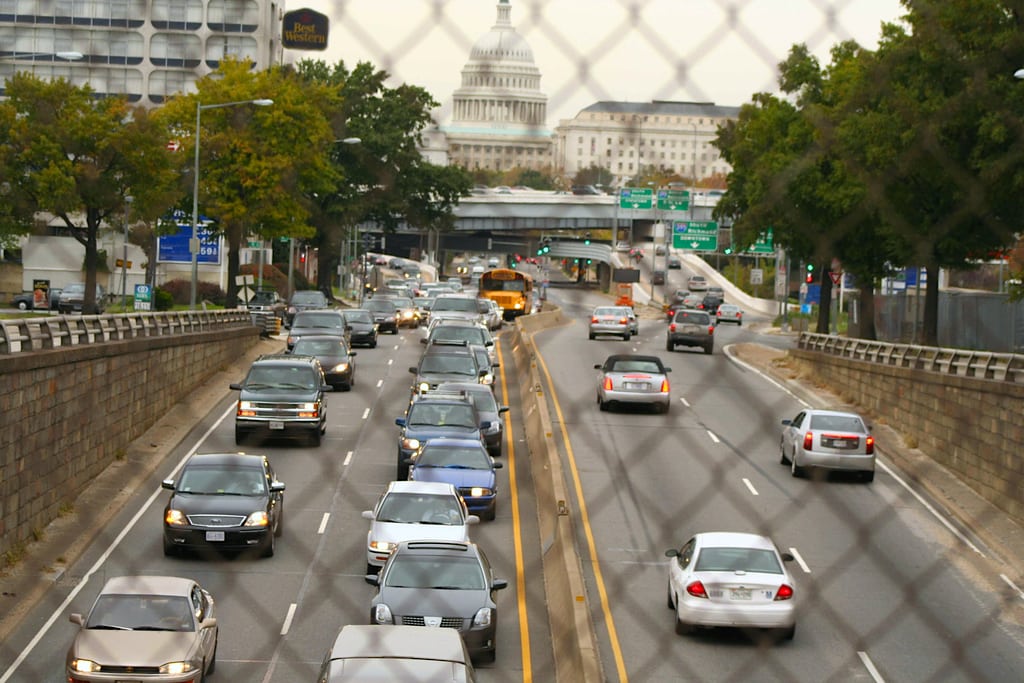The Worst Cities for Commuting, Broken Down by Traffic Delays

Skift Take
Washington, DC, is the absolute worst U.S. city for daily commuters, according to Passenger Travel Facts and Figures, a report outlining personal travel trends released by the U.S. Bureau of Transportation Statistics this week.
Each American that commutes to work daily in the DC area, including Virginia and Maryland, encountered 67 hours of delays in 2011. That’s approximately 16 minutes a day, 8 minutes in each direction, based on 251 days of work per year.
The delays are not much better in the Los Angeles/Long Beach area or San Francisco/Oakland region where daily commuters encountered 61 hours of delays in 2011. That’s approximately 14.6 minutes per day.
New York City isn’t listed in the 12 worst cities for commuter delays, in large part because of its public transportation system, including the subway system, Metro-North, and Long Island Railroad, that carries more than 165 million passengers each year.
The following chart outlines yearly hours of delays per auto commuter:
| Urban Area | 1982 | 2000 | 2005 | 2010 | 2011 | Long-Term Change ('82-'11) |
|---|---|---|---|---|---|---|
| Washington, DC - VA - MD | 18 | 65 | 74 | 66 | 67 | 49 |
| LA - Long Beach - Santa Ana, CA | 37 | 72 | 78 | 61 | 61 | 24 |
| San Francisco - Oakland, CA | 24 | 72 | 89 | 60 | 61 | 37 |
| Nashville - Davidson, TN | 23 | 48 | 57 | 46 | 47 | 24 |
| Denver - Aurora, CO | 11 | 42 | 48 | 44 | 45 | 34 |
| Orlando, FL | 13 | 55 | 51 | 44 | 45 | 32 |
| Honolulu, HI | 19 | 34 | 43 | 45 | 45 | 26 |
| Baton Rouge, LA | 10 | 36 | 43 | 42 | 42 | 32 |
| Bridgeport - Stamford, CT - NY | 13 | 51 | 54 | 42 | 42 | 29 |
| Worcester, MA - CT | 13 | 40 | 40 | 33 | 33 | 20 |
| Cape Coral, FL | 10 | 29 | 36 | 29 | 30 | 20 |
| Columbia, SC | 5 | 20 | 24 | 30 | 30 | 25 |
Source: Texas Transportation Institute’s 2012 Urban Mobility Report, Powered by INRIX Traffic Data.




